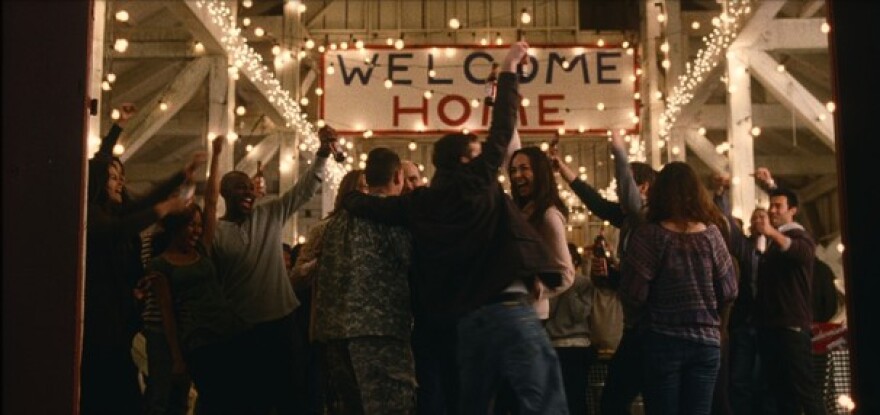Beer companies across the country are using America’s heroes in ad-campaigns on social media, television and even billboards. But, some are raising concerns about using a group like veterans to sell beer, who are more vulnerable to alcoholism.
If you’ve “liked” Budweiser on Facebook or you’ve driven down West Tennessee Street in Tallahassee over the summer you may have noticed an ad campaign urging you to greet returning war veterans with an ice cold Bud.
”For the record, I will always take a free bucket of beer.”
That’s Iraq and Afghanistan veteran Pete Hegseth, who founded the advocacy group Concerned Veterans for America. According to the National Institute on Drug Abuse, military veterans are more likely to struggle with alcoholism. But, he said he has no problem with veteran’s images being used in advertising, even for beer, as long as it doesn’t cross the line.
“I’m not going to condemn folks that are you know highlighting and honoring soldiers and those of the fallen and making money at the same time as long as it doesn’t turn into exploitation,” Hegseth said.
To Hegseth it’s not exploitation if veterans benefit from helping promote the product. For its part, Budweiser has given millions to veteran’s charities. And for every keg the company sold during a 2011 summer promotion, it donated five dollars goes to legion halls and VFW posts around the country. Hegseth says the money can make a difference in veteran’s lives.
“Most of these initiatives include: We’ll give 10 percent of the proceeds to particular charities here and there. And I was reading about one today, in fact I think it was Budweiser, they give to a pretty remarkable charity, millions of dollars through these initiatives that are able to give scholarships to those of the fallen and others. I think we ought to honor that,” Hegseth said.
Hegseth’s veteran colleague, Darin Selnick is more skeptical though. He believes if a company is going to make commercials praising veterans, those firms need to put their money where their mouth is.
“A lot of these companies use the veterans and the military as a prop to say aren’t we wonderful how we treat these veterans?, etc., etc. and we have employment initiatives. And then I say okay so, show me the money. Meaning okay, so what do you actually do besides these commercials? You say you’re hiring, you always hear about hiring initiatives. But, you never see the results,” Selnick said.
And Selnick takes even more issue with troops being used in political ads. He said vets can’t assume that candidates who use them as political props are really on their side.
“It takes a little research to find the facts from the fiction. But, you know if they’re voting things that’s going to throw a hundred thousand veterans out, then maybe they’re really not that supportive of the military and veterans,” Selnick said.
Not everyone is so skeptical though. Jane Horton is a military widow whose husband was killed in Afghanistan about a year ago. She said people can be too quick to cry foul when politicians use veteran stories, like her husbands, on the campaign trail and in political advertisements.
“And I’ll tell you one thing personally: I’ve had absolutely enough of everyone being jaded about everything being exploitation. Like I’m afraid to share my story or my husband’s story or someone did something nice for me. Because everything someone does is exploiting the little war widow. And I’ve had enough of it,” Horton said.
For Commander Mark Alvarez of VFW post 3308 in Tallahassee the only way to make sure that any ad, whether commercial or political, isn’t taking advantage of the troops is eternal vigilance.
“We’ll hold them accountable to those promises and those images that they show in the background in order to get elected or to get their point across,” Alvarez said.
Alcoholism remains a problem among service members. But, most of the vets interviewed for this story agree that the money donated to groups like Paralyzed Veterans of America by companies like Budweiser, far outweighs any potential damage done by their ads. And that the only way to truly fix the problem is better care and education at home.

